
“Our very own Agatha Christie,” claims a quote from the Sydney Morning Herald on the cover of June Wright’s Duck Season Death, written in 1955 but only just published. In post-war Australia, June Wright’s mystery novels famously outsold even Christie’s, and yet by Wright’s death in 2012 all of her novels were out of print and mostly forgotten. That is until US publisher Verse Chorus started re-issuing them in 2013, under its Dark Passage imprint.
The first to be republished was 1948’s Murder in the Telephone Exchange, which made my Lost Gems of the Golden Age list last year – in fact it inspired that list. Wright began Murder in the Telephone Exchange in 1943, when her first child was only a year old, and would continue balancing caring for her family with writing for the following two decades. She worked as a telephone operator during the war years, experience which gave her many of the characters and settings for her debut novel. Murder in the Telephone Exchange features young telephone operator Maggie Byrnes – reportedly not based on Wright herself – investigating the death of one of her colleagues, a busybody (although Maggie confesses another B-word may be a more accurate description) who had her head beaten in by a buttinsky, a device used for listening in on phone calls.
It’s not only the unique setting and inspired, lively characters that made June Wright’s debut so successful. It’s a complex, dark novel with a female detective who was far ahead of her time. Despite the comparisons to Agatha Christie, Wright’s witty debut more closely resembles the work of Dorothy L Sayers. It’s fast and smart, but also darker than most of the Golden Age greats.
Its sequel, So Bad a Death, was written while Wright had four children between the ages of three and seven. Much is made of the fact that she wrote her novels while busy with motherhood – her obituary in the Sydney Morning Herald had the headline, “Juggled crime fiction with motherhood.”
In a 1948 interview with The Australian Women’s Weekly Wright explained how she found time to write between washing, cleaning, preparing meals, sewing, gardening and ironing. “I spend one night a week ironing,” she explained, after summarising her daily schedule, “but I write on others.”
Who would murder a baby?
So Bad a Death, which was at one point going to be called Who Would Murder a Baby?, sees the return of Maggie Byrnes, this time as a young mother in the comfortable and tranquil suburbs of Melbourne. Unlike Murder in the Telephone Exchange, the names of the locales are all changed, but are still recognisably Melbourne. It’s a bit like an episode of the television programme Neighbours with attempted infanticide added in. At the time it was described as, “…possibly the best Australian thriller yet written,” and shares a lot with Wright’s debut; there’s the brutal murder of an unlikeable figure, and a lack of progress by the police, which leads to Maggie Byrne taking on the role of amateur detective.
Despite the modest success of her first two novels, Wright (pictured) changed her style for the next novel she wrote, The Law Courts Mystery, which was rejected by her publisher. She followed with a psychological thriller, The Devil’s Caress, which did not share the success of Wright’s first two novels. In Reservation for Murder (1958), Wright introduced Catholic nun-turned-detective Mother Paul, who was to feature in the last two novels published during her lifetime, Faculty of Murder (1961) and Make-Up for Murder (1966). When Stewart Wright fell ill, June Wright gave up writing in order to work and support her family, leaving behind five published novels and at least two unpublished manuscripts, one of which has been published for the first time by Verse Chorus Press.
Duck Season Death, written between the first and second Mother Paul mysteries, was initially rejected as an overly formulaic country house mystery. It tells the story of Athol Sefton, editor of an often cruel literary magazine, who is shot dead during duck hunting season in rural Victoria. Sefton’s nephew Charles, the detective fiction reviewer for his uncle’s magazine, takes it upon himself to investigate the murder, using the rules he knows so well from reviewing detective fiction. He soon finds out that real life doesn’t necessarily follow the rules of detective fiction.
As well as being a brilliantly intelligent parody of the genre, it’s also a great mystery in its own right, which still reads well today. There are genuinely funny moments, for instance when Charles is accused of letting his imagination run away with him and he replies, “I haven’t got that much imagination, otherwise I would write books instead of reviewing them.” It’s a line which resonated especially with me! This is a novel that was unjustly dismissed 60 years ago, and is finally available to modern readers.
June Wright’s novels still feel current, despite being undeniably connected to their time and place of writing. Readers may sense some similarity between June Wright’s novels and Kerry Greenwood’s Miss Fisher’s Murder Mysteries; another series that helped Melbourne re-establish its place as Australia’s capital of crime. There are still at least four June Wright novels to be republished, and I look forward to seeing more of them in print again.
For more Golden Age crime fiction, click here.






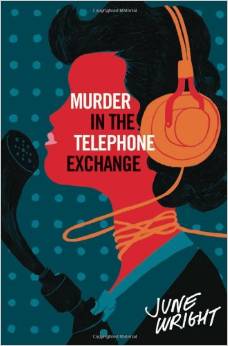
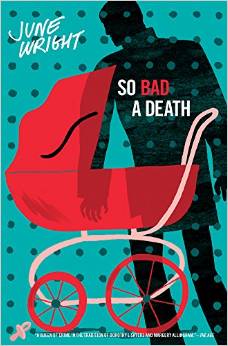
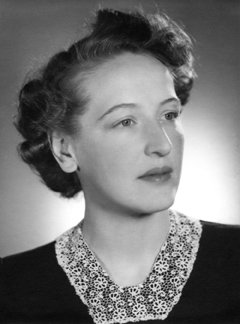
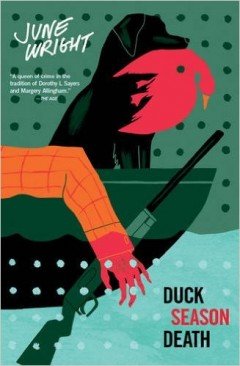




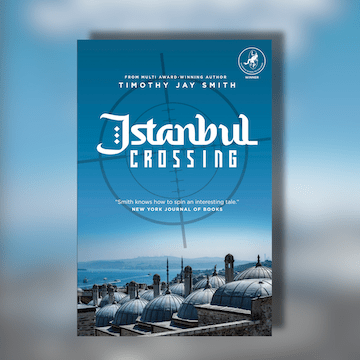

It’s fantastic news that these stories have been rediscovered and republished. Thanks for this informative feature.
Glad you enjoyed it.